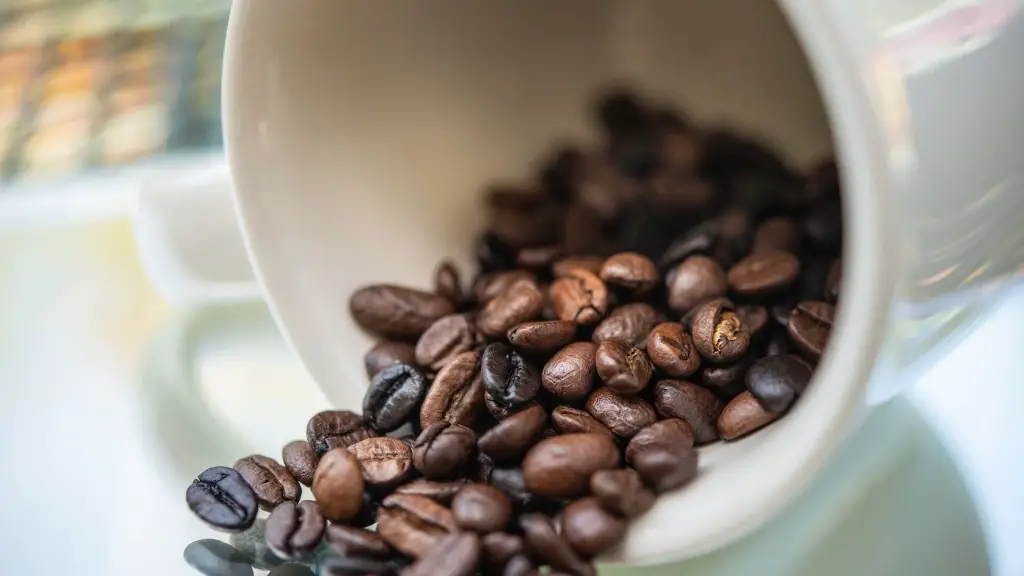What’s in Starbucks Coffee?
If you love coffee, particularly Starbucks Coffee, you’ve probably heard about the caffeine. Caffeine is a stimulant found in many beverages, including coffee, tea, energy drinks, and soft drinks. As a stimulant, caffeine helps to make people feel more alert and energized. But how much caffeine is actually found in Starbucks Coffee? It may surprise you to learn that there’s a pretty wide range in caffeine content across different Starbucks products. In this article, we’ll look more closely at the caffeine content of various Starbucks Coffee offerings.
Caffeine in Starbucks Coffee Blends
The caffeine content in Starbucks Coffee can vary depending on the blend. For instance, Starbucks Blonde Roasts typically contain the lowest amount of caffeine — between 180 and 240 milligrams per 12-ounce cup. On the other end of the spectrum, Starbucks Espresso Roasts can contain up to 360 milligrams of caffeine per 12-ounce cup. Medium Roast Coffees, such as Pike Place and House Blend, are somewhere in between, often containing between 270 and 300 milligrams of caffeine per 12-ounce cup.
Caffeine in Starbucks Non-Coffee Beverages
In addition to traditional coffee drinks, Starbucks also offers a wide selection of alternative drinks. But how much caffeine are you getting if you opt for one of these? The answer varies. For example, a Grande-sized bottled Frappuccino (which is 12 ounces) typically contains between 95 and 150 milligrams of caffeine. A Grande-sized Iced Espresso Classic (also 12 ounces) can contain up to 250 milligrams of caffeine, depending on how it’s prepared. However, the caffeine content in many of Starbucks’s other non-coffee drinks is much lower. For instance, a Grande-sized Starbucks Latte (which is 16 ounces) generally contains just 75 to 150 milligrams of caffeine.
Caffeine as Compared To Other Beverages
In comparison to other beverages, Starbucks Coffee drinks typically have quite a bit of caffeine. For example, 12 ounces of an energy drink usually contains around 100 to 120 milligrams of caffeine. By contrast, a small cup of drip coffee (8 ounces) that has not been decaffeinated usually contains about 95 milligrams of caffeine. Even Coca-Cola, which is known for containing caffeine, typically contains only 34 milligrams of caffeine per 12-ounce can.
Drinkers Beware: Too Much Caffeine Can Be Harmful
It’s important to recognize, however, that getting too much caffeine is not a good thing. According to the Mayo Clinic, most adults should stick to no more than 400 milligrams per day. That’s about 4 cups of brewed coffee or 2 Starbucks Venti-sized Coffees with Espresso. Caffeine can cause jitteriness, anxiety, irritability, restlessness, and difficulty sleeping, so it’s important to keep an eye on how much you’re drinking. Also, if you’re trying to reduce your caffeine intake, reducing or eliminating your intake of Starbucks Coffee drinks can be a good place to start.
Health Benefits of Caffeine
Caffeine does have some potential health benefits. It can help to improve both mental and physical performance. For example, caffeine has been shown to increase alertness, decrease fatigue, and improve reaction time. It has also been shown to help with physical performance. Studies have found that caffeine can reduce fatigue and increase endurance during exercise. As such, some athletes use caffeine to help boost their performance. However, more research is needed to better understand the health benefits of caffeine.
Data Source and Regular Updating
It’s important to note that the caffeine content in various Starbucks Coffee drinks is not always consistent. This can be due to a variety of factors such as differences in brewing methods and variations in suppliers. That said, Starbucks does post caffeine information on its website, which is regularly updated. If you’re ever unsure about the caffeine content of a particular Starbucks product, you can always double check on the Starbucks website.
Effects of Caffeine Over Time
Finally, it’s also important to recognize that the effects of caffeine on the body can vary over time. In general, people tend to be most sensitive to the effects of caffeine when they first begin drinking it. This is because they haven’t built up a tolerance to it yet. Over time, however, people can become more tolerant to caffeine and its effects. So, it’s possible to become less sensitive to the stimulating effects of caffeine over time, even if you’re drinking the same amount.


